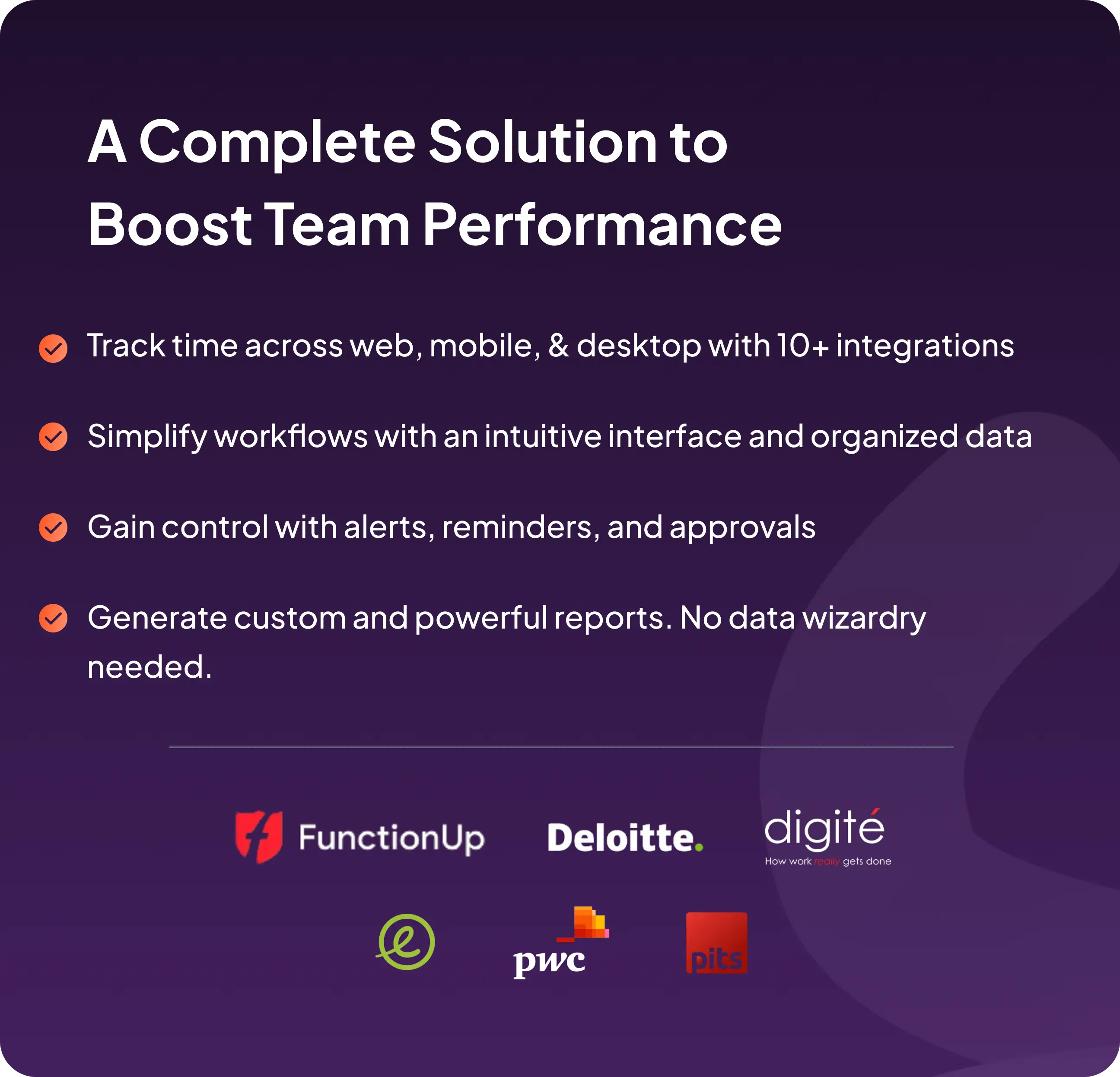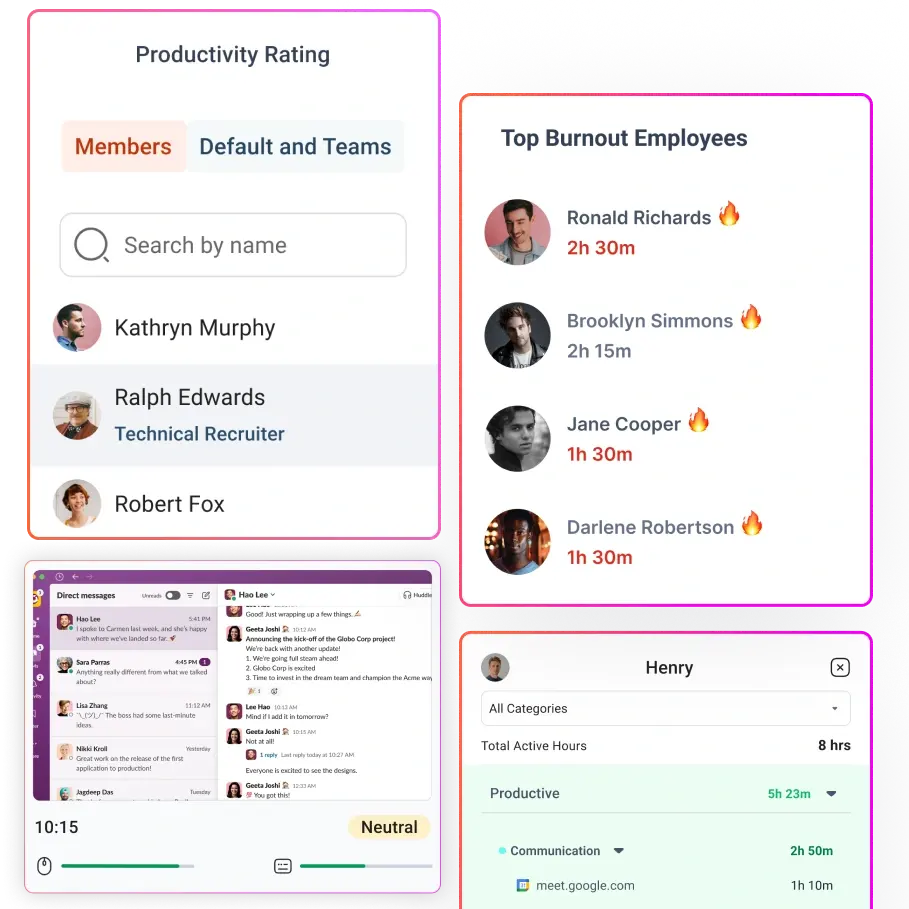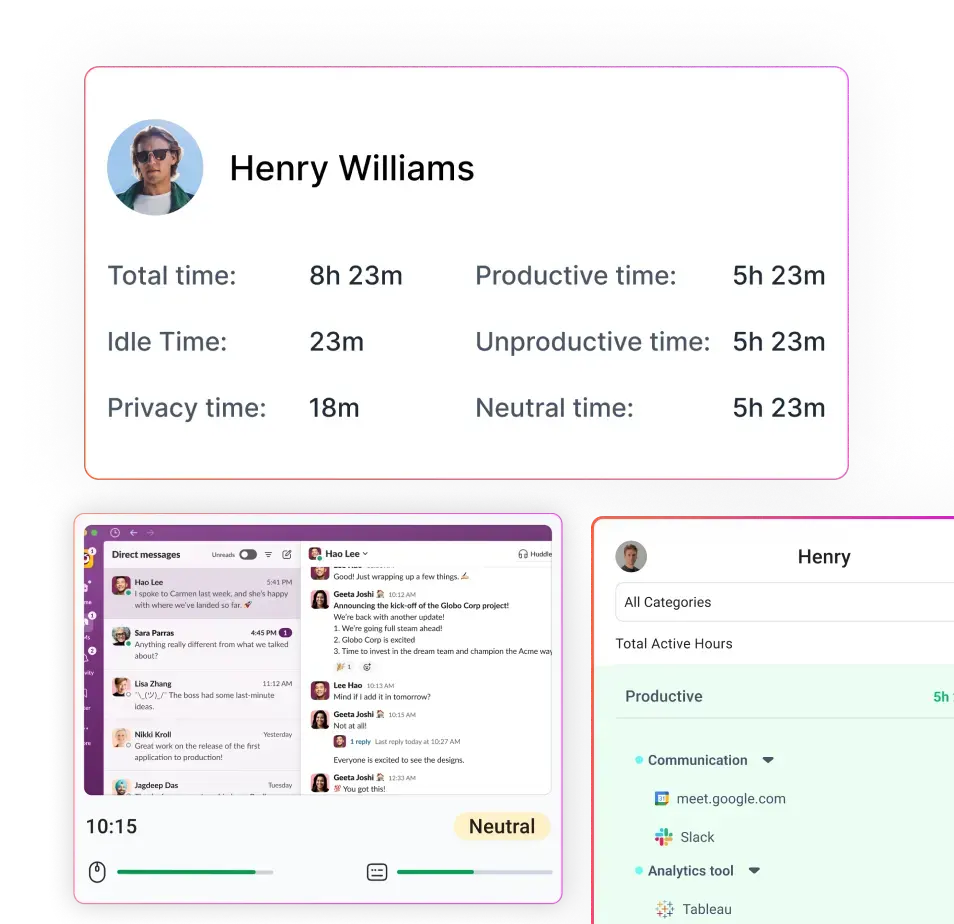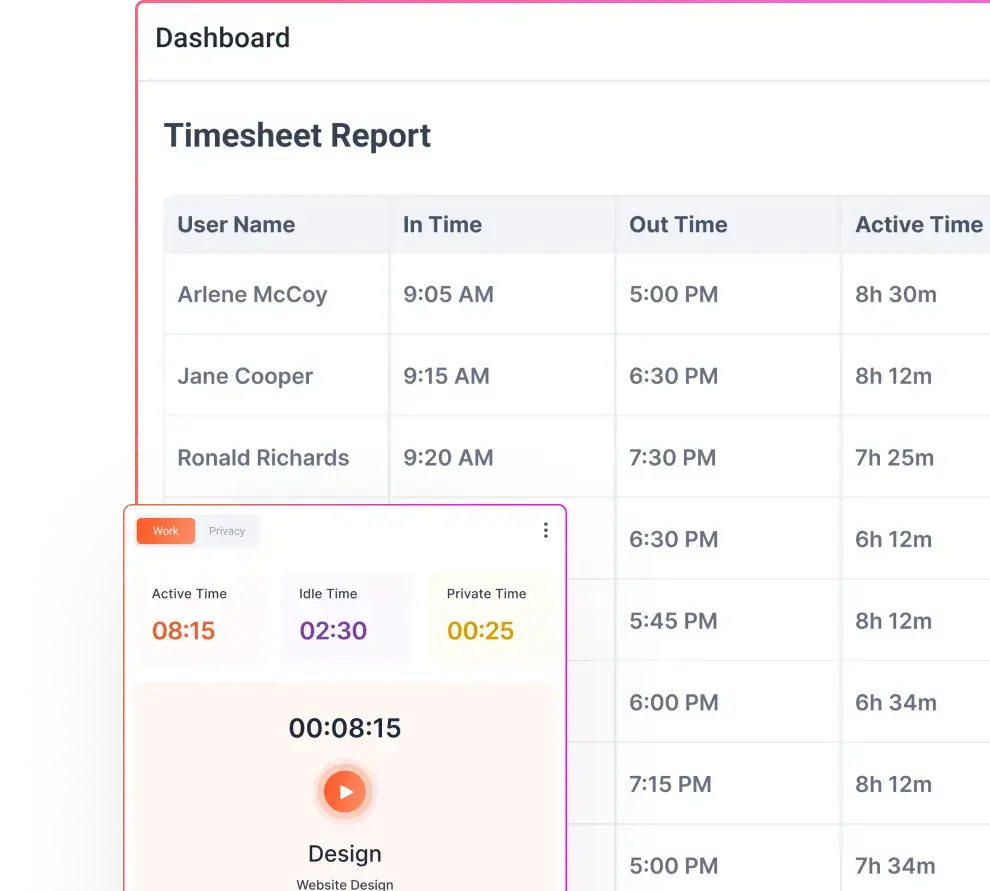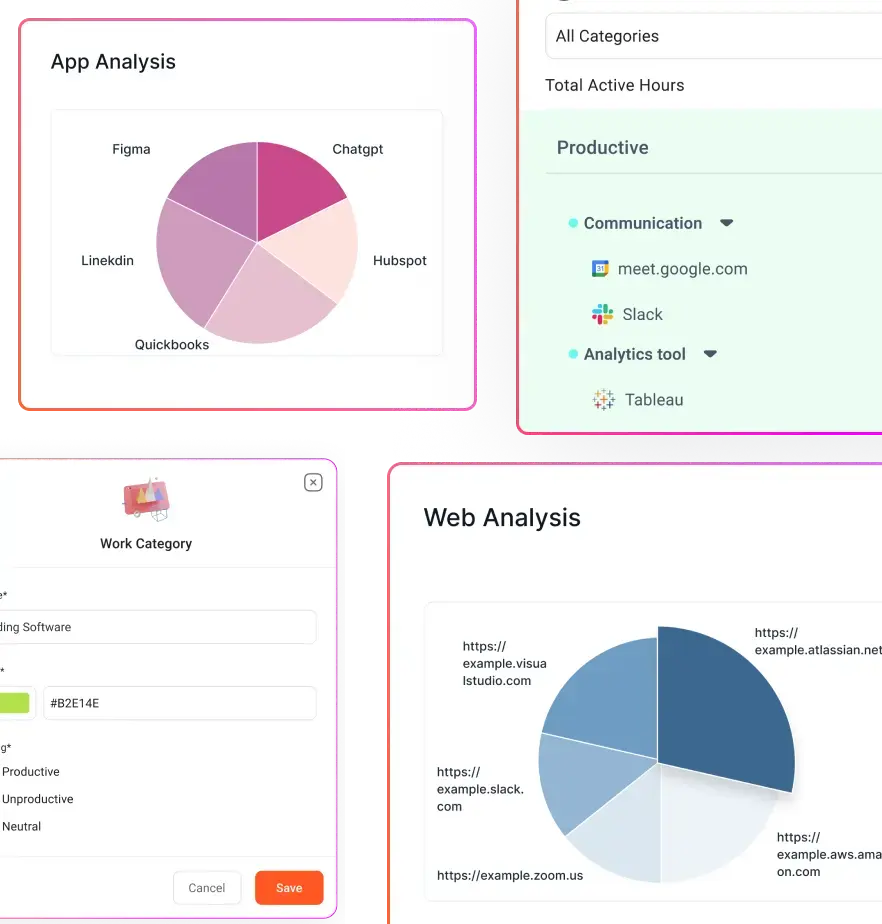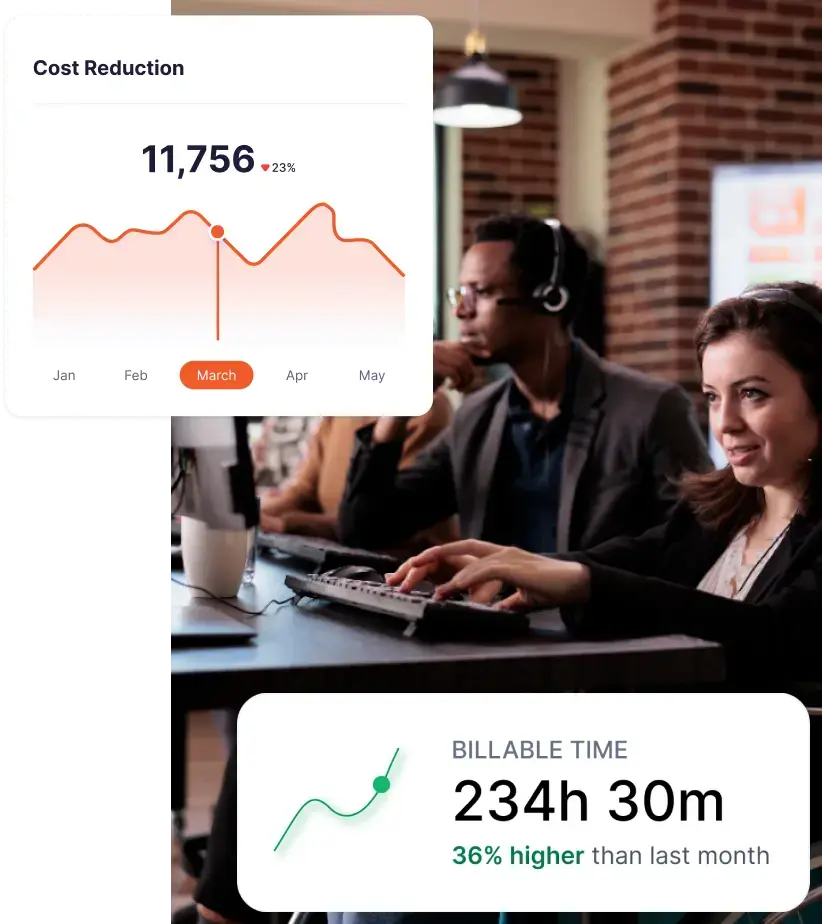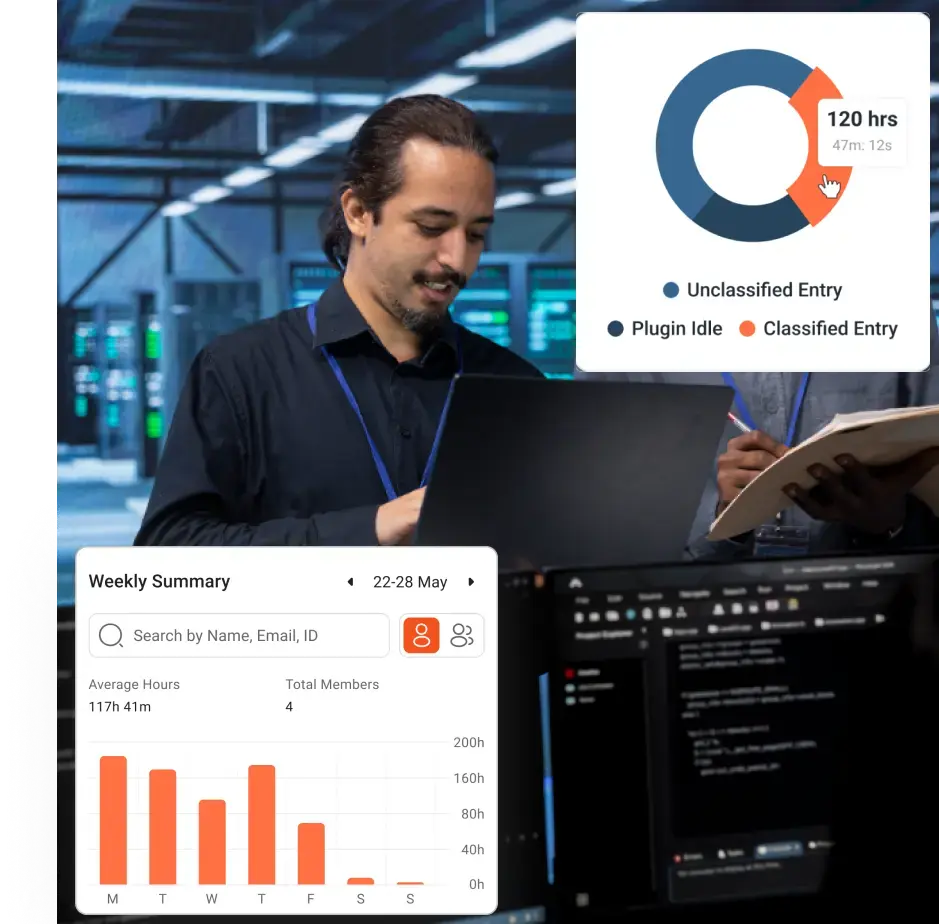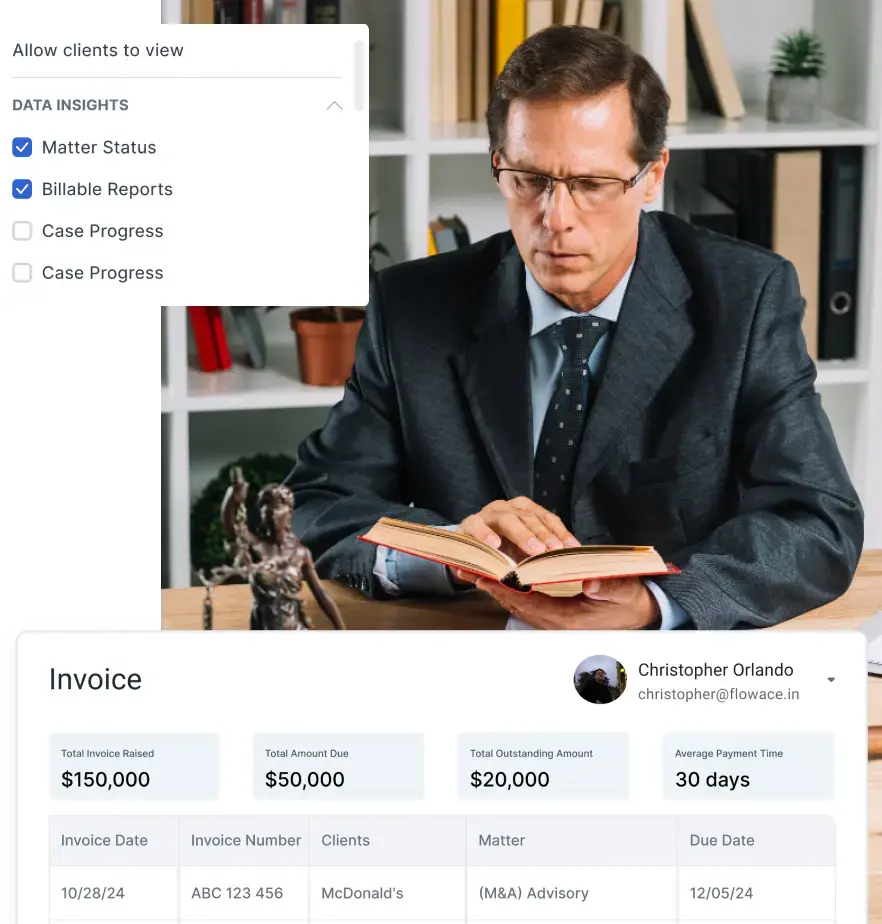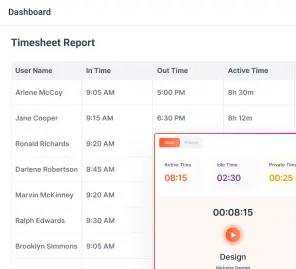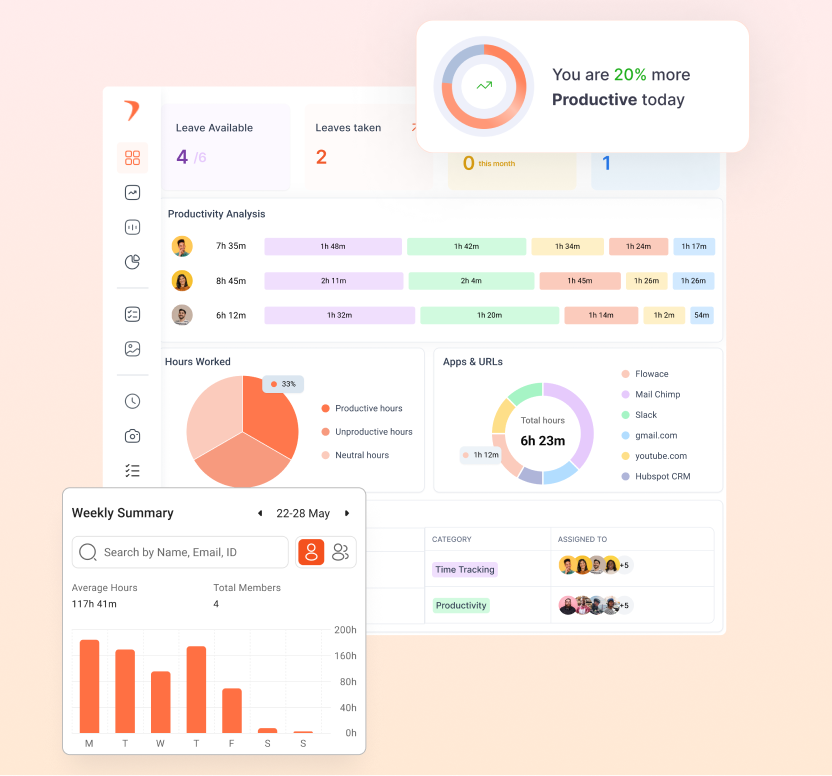Beyond their knowledge of payroll and inbound and outbound calls, call center managers need soft and hard work to improve team productivity and customer satisfaction.
According to Forbes, leaders who are less inspiring and motivated make 47% of their direct reports consider quitting, and 93% of the time, they are rated in the bottom 10% of productivity.
A competent manager should be able to handle challenging calls, handle complaints, and provide excellent customer service.
But the list doesn’t end here!
Hiring a manager for a call center is a challenging job.
An average call center has a turnover rate of 30-45%, according to the Quality Assurance & Training Connection. Many new hires quit even before training is completed.
But, finding a suitable candidate with the right mindset can make the process easier. Every good leader demonstrates only a few skills and qualities. So, let’s explore those essential call center manager skills.
Boost by 31% using the innovative solution by Flowace!
Get Started for Free10 Call Center Manager Skills to Improve Team Productivity and Efficiency
The following are some of the most significant call center managers’ skills to thrive in agent performance and company success:
Experience
It starts with knowledge and experience. An efficient call center relies on efficient, experienced, and credible managers. Their expertise extends beyond mere titles; it encompasses a blend of skills, years of hands-on experience, and unwavering dedication.
Experienced call center managers bring intelligence, adaptability, and situational leadership to the table. As work cultures shift—especially after the pandemic—these leaders are pivotal in managing remote and hybrid teams. Their ability to navigate change, foster a positive environment, and ensure seamless operations is invaluable.
Whether it’s exceptional customer service, workforce management, or conflict resolution, their seasoned expertise keeps call centers running smoothly and agents motivated.
Empathy and Emotional Intelligence (EQ)
Developing empathy and EQ are fundamental for effective leadership.
Empathy allows managers to connect with team members and customers, fostering a supportive environment that boosts agent satisfaction and customer loyalty. Studies show that empathetic managers tend to perform better, navigating high-pressure settings with composure and resolving conflicts diplomatically.
Likewise, EQ enables managers to understand customer needs and emotions, improving service quality and increasing satisfaction. By leveraging empathy and emotional intelligence, managers can build trust, rapport, and collaboration within their teams, driving overall performance and success in the ever-evolving landscape of call centers.
Excellent Communication Skills
Effective communication is the cornerstone of successful leadership. Great managers articulate expectations clearly, facilitating a cohesive and efficient work environment.
Effective communication is paramount for call center managers.
Clear communication ensures that instructions, guidelines, and expectations are conveyed accurately to call center agents. Managers with strong communication skills can convey information clearly, leading to better-trained agents.
Managers who communicate vision, goals, and appreciation motivate agents to excel. They also effectively ensure a smooth transition.
Employee Monitoring and Training
Monitoring employee performance and providing targeted training are essential for maintaining high service delivery standards.
Call center managers must continuously assess agent performance, identify areas for improvement, and implement skill enhancement programs. One of the high skills requirements of a call center manager lies in ensuring optimal performance, employee development, and overall success.
However, their key responsibilities in employee monitoring and training include:
- Monitoring performance: Regular review of call recordings and live interactions is vital. Including identification of skill gaps through performance metrics analysis. Moreover, the development of individualized improvement plans for agents.
- Training and Development: Conduct regular training sessions covering customer service techniques and technical skills. And, provide technical training to ensure proficiency in call center tools and systems.
- Assurance of Quality: Ensure adherence to quality standards through call interaction reviews. On top of that, offer coaching and support to address challenges and maintain service quality.
- Performance Metrics and KPIs: Utilize key performance indicators (KPIs) and other metrics like average handle time (AHT) and customer satisfaction rate (CSAT) to measure success.
- Motivation and Recognition: Boost employee morale, which is the ultimate key. So, keep consistency in performance through continuous recognition and growth
Strategic Thinking Abilities
According to studies, Strategic Thinking and strategically successful people see their organization and the business environment differently than most people.
Call center managers must possess strategic thinking abilities to set realistic targets and goals aligned with organizational objectives. A manager with this skill anticipates challenges better, adapts to changing circumstances, and optimizes resources to achieve desired outcomes.
Problem-Solving Skills
Problem-solving in business is a systematic way to remove barriers that prevent you or others from reaching goals.
Call center managers must cultivate this skill to meet the needs of the agents.
They must swiftly identify and address issues to ensure smooth operations, maintain high levels of customer satisfaction, and support agents in navigating complex situations. Effective problem-solving contributes to operational efficiency as managers optimize workflows, resolve technical issues, and streamline processes to enhance productivity.
Managers with tangible problem-solving abilities can mediate conflicts among team members and drive continuous improvement by proactively addressing recurring issues and implementing solutions for long-term success.
Excellent Workforce Management
Recent findings from the Zendesk Customer Experience Trends Report 2023 highlight that 72 percent of customers demand immediate service, underscoring businesses’ need to prioritize prompt customer support. Therefore, workforce management is an integral part of their role.
Exceptional workforce management in call centers involves implementing a workforce management (WFM) solution to operations and creating a healthy work environment.
It also includes overseas staffing, scheduling, recruitment, training, performance management, workforce optimization, employee engagement, quality assurance, and forecasting. These duties are critical for maintaining operational efficiency and delivering high-quality customer service that aligns with the industry’s evolving demands.
Accessibility, Approachability, and Accountability
Accessibility, approachability, and accountability are paramount for the effective functioning of the call center.
Being approachable goes beyond mere friendliness; it’s about creating a workplace that is open to communication. Accessibility fosters open communication, allowing for the timely resolution of issues and exchanging valuable ideas. In a fast-paced call center setting, the ability for agents to reach out without hesitation can significantly impact productivity and morale.
Moreover, accountability is crucial in driving performance and maintaining trust within the team. Call center managers must not only take responsibility for their actions but also hold themselves accountable for the outcomes, whether positive or negative.
The 3 A’s sets a standard of integrity and reinforce a culture of ownership and excellence. When managers demonstrate accountability, it instills confidence in their leadership and inspires incredible dedication and accountability among team members.
Accessible and approachable managers embody accountability and are instrumental in building strong relationships, fostering trust, and driving performance.
Growth Mindset
In call centers, where service level agreements (SLAs) and sales goals are paramount, a growth mindset and leadership are essential. A leader with a growth mindset equips call center teams to achieve targets and meet clients and customer needs.
Such managers are better able to embrace challenges and seek opportunities for learning and development. By viewing setbacks as stepping stones to improvement, they refine their skills and approaches, leading to enhanced service delivery and increased sales performance.
A positive culture ensures continuous improvement, where agents are motivated to exceed expectations and drive success. And it starts with embracing a growth mindset.
Prioritization of Customer Satisfaction
Ultimately, the success of a call center hinges on customer satisfaction. Hence, managers must lead with a customer-centric approach, ensuring agents are well-equipped to deliver exceptional service and resolve issues efficiently.
Managers play a pivotal role in driving long-term success and fostering business growth by monitoring customer feedback and implementing targeted strategies to enhance the overall customer experience.
To achieve this, managers must:
|
Bottom Line
Success in call centers depends on the manager’s ability to grasp the key competencies and skills that might not even be listed in job descriptions.
Learning the above skills will help managers maximize operations and promote a culture of success by arming themselves with the required knowledge and resources.
They can effectively and confidently handle the demands of call center operations by developing their leadership, communication, problem-solving, and customer-centric abilities.
Moreover, it becomes easier if one can easily measure performance metrics, find reports on development, and promote ongoing growth and development within their teams by utilizing employee productivity and time-tracking tools like Flowace.ai.




















































